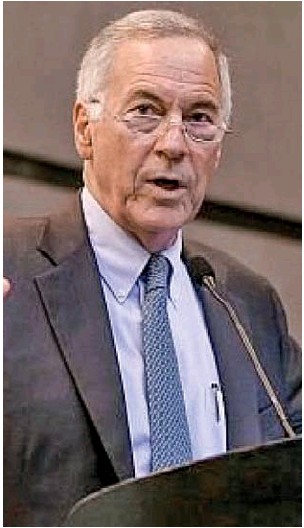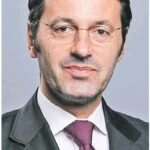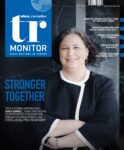A professor of applied economics at Johns Hopkins University in Baltimore and the founder and co-director of the Johns Hopkins Institute for Applied Economics, Global Health, and the Study of Business Enterprise, Steve H. Hanke is a internationally-respected economist who has worked as an advisor in the reconstruction of currencies in developing countries such as Argentina, Estonia, Ecuador and Bulgaria.
Hanke has been closely following the Turkish economy since the 1994 financial crisis. He believes the “Currency Board” system is the most suitable foreign exchange policy for Turkey. He argues that in order to reduce inflation in Turkey, the Turkish lira should be fixed to gold and that instead of a Central Bank, the government should establish a currency board.
The 5P strategy should be on every country’s agenda, according to Hanke. The professor first came across the strategy in the early 1980s when he was a member of U.S. President Ronald Reagan’s Economic Advisory Council. He said of all countries across the world, Singapore was the most successful in implementing the 5P strategy. “The best example of a clean, lean and mean, and almost corruption-free, government is Singapore. If I was running the show in Turkey, I would adopt what I call the Singapore Strategy.”
The Singapore Strategy incorporates five critical steps, Hanke says. In order to develop trust and lure in more investors, monetary stability is the key. When Singapore first gained its independence in 1965 from Malaysia, it was backward and poor. It was a barren speck on the map in a dangerous part of the world. If that wasn’t enough, it was experiencing race riots, which came close to igniting a civil war. But, at its founding, Singapore had a leader, Lee Kuan Yew who hadclear id eas about how to modernize the country – a strategy dubbed the “Singapore Strategy”.
The renowned economics professor, Dr. Steve Hanke, believes every country should adopt the 5P (Prior Preparation Prevents Poor Performance) approach following the crisis caused by the global coronavirus pandemic.
“To execute the strategy with precision,” Hanke says, “Singapore appoints only first class civil servants and pays them first-class wages. Today, for example, the Singaporean Finance Minister’s annual salary is 1.3 million euros. In exchange for these high salaries, the Singapore Strategy demands that the government run a tight ship, with no waste or corruption. By embracing Lee Kuan Yew’s Singapore Strategy of stable money, no foreign aid, first-world competition, law and order, and a government that is free of waste and corruption, Singapore has transformed itself from a poor, barren speck to a global financial center and one of the richest countries in the world. Countries must follow the lead of countries like Singapore, Hong Kong, South Korea, and Sweden. These countries have tried to mitigate the damage associated with using a sledgehammer approach to fight the coronavirus. Indeed, they have used a more targeted and intelligent approach to keep their economies running. You can do that with a lot of testing and tracing.”
>> STABLE MONEY IS THE KEY
“The first element [of the Singapore Strategy] was stable money. Singapore started with a currency board system – a simple, transparent, rule-driven monetary regime. Currency boards operate on autopilot, with automatic adjustments keeping the system in balance. Accordingly, currency boards deliver discipline to the spheres of money, banking, and fiscal affairs. For Singapore, the currency board provided stable prices and free convertibility of the Singaporean dollar, which was fully backed by foreign reserves and gold, at a fixed exchange rate. This established confidence and attracted foreign investment.”
>> NO NEED FOR FOREIGN INVESTMENT!
“The second element was that Lee Kuan Yew ruled out passing the begging bowl. Singapore refused to accept foreign aid of any kind. This is a far cry from many developing countries, like Turkey, where, when you pick up the paper, all you see are politicians and bureaucrats trying to secure foreign aid (and EU transfer payments) from someone, be it an NG•, a foreign government, or an international financial institution, like the World Bank. By contrast, signs reading ‘no foreign aid’ were hung figuratively outside every government office in Singapore.”
>> THE PRIVATE SECTOR NEEDS COMPETITIVE STRENGTH
“The third element was that Singapore strived to have first-world, competitive private enterprises. This was accomplished via light taxation and light regulation, coupled with completely open and free trade — in short, policies that enabled Singapore to become one of the Asian Tigers.”
>> LAW AND PUBLIC ORDER ARE A PRIORITY
“The fourth element in the Singapore Strategy was an emphasis on personal security, public order, and the protection of private property.”
>> WITH FIRST̞CLASS CIVIL SERVANTS, CORRUPTION DISAPPEARED
“The fifth, and final, element in the Singapore Strategy was a ‘small,’ transparent government – a minimalist government that avoided complexity and red tape.”










